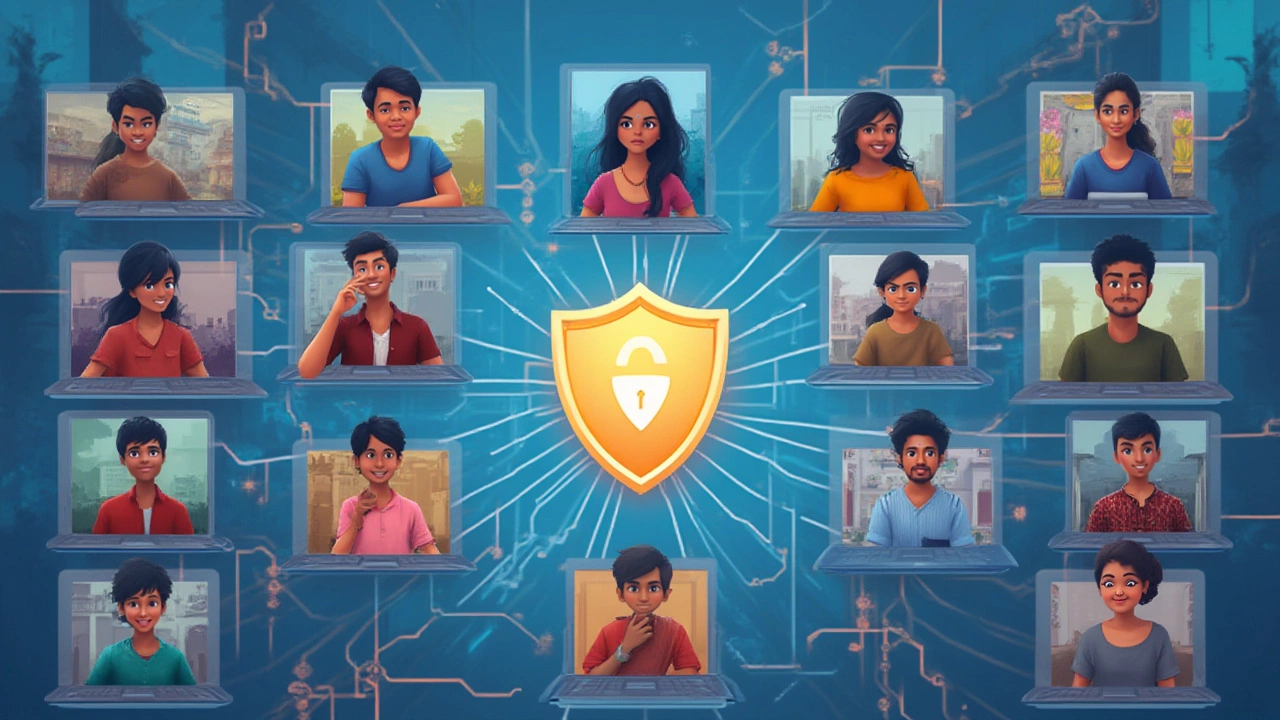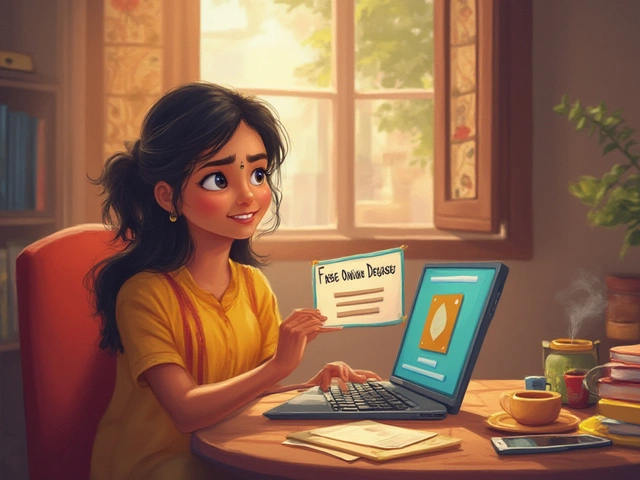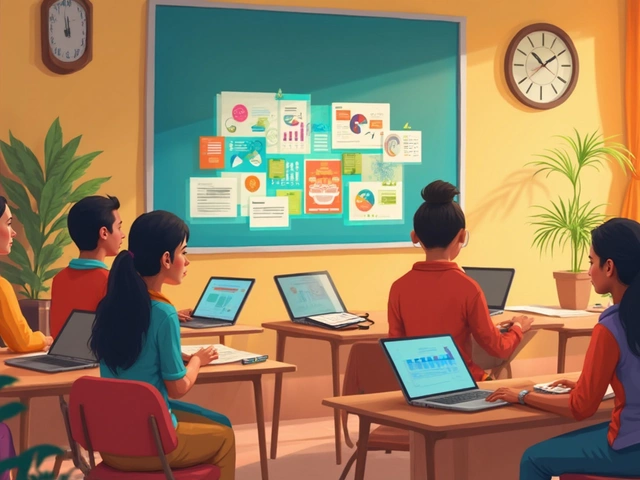Picture this: no student loan debt, no tuition bills stacking up, and yet you get to tell people you have a real, verifiable university degree. Sounds unreal, right? Most folks assume zero-tuition degrees are just another internet myth, but when you start digging, you’ll find a peculiar mix of hope and reality. Back in school, handing over obscene amounts for textbooks felt like a scam. Now, in 2025, with so many universities scrambling for online learners, you’d think full college degrees would be just a free click away. But are they really? Are there legit, fully-accredited online degrees you can snag for free—or is it just a load of clickbait? Let’s untangle what’s really out there for anyone looking to learn big without spending big.
The Big Picture: What Does "Free Online Degree" Really Mean?
First, let’s clear up the terminology because there’s a lot of confusion out there. When someone talks about a free online degree, it usually means you don’t have to pay tuition fees. But, even in 2025, “free” almost never means you’ll pay absolutely nothing. You might have to buy textbooks, pay application costs, or cover exam fees. Still, there are universities and programs that come shockingly close to being genuinely free from start to finish. What matters most for your future is whether these degrees are from accredited institutions, which makes a difference for employers and further studies.
Now, what kinds of degrees are free? Typically, bachelor’s and master’s programs are the main categories. Some institutions, like University of the People or Open University (with some caveats), offer tuition-free degrees. University of the People, for example, has no tuition but does charge a one-time application fee and fees per course exam. For a typical undergraduate degree, you’re looking at up to $4,860 total in 2025—a fraction of what you’d pay elsewhere, but not entirely free. But some students can get fee waivers or scholarships that shrink costs down to zero. It’s definitely the closest thing to a true free college degree you can find right now.
There are also government-funded online education projects in countries like Germany and Norway. In some cases, residents and even international students have the chance to grab tuition-free online degrees, especially if the courses are in the native language. English-taught programs are more limited, but if you’re comfortable learning in another language, it widens your options.
Several digital platforms like Coursera, edX, and FutureLearn partner with top universities to offer massive open online courses (MOOCs). You can study everything from coding to psychology and earn “microcredentials” or professional certificates for free. But here’s the catch: Most don’t lead directly to a university degree unless you pay. Some, like edX’s MicroBachelors, can be stacked into a degree when combined with paid components from a partner university.
So, do totally free online degrees exist? Yes—if you’re flexible, know where to look, and are ready to hustle through scholarship paperwork, and sometimes stick to a certain language or country. For most people, “free” means dramatically reduced cost, not zero.
Tuition-Free Universities: Real Institutions You Can Apply to Online
If you just want names, let’s be concrete. University of the People, based in the United States and accredited by the Distance Education Accrediting Commission (DEAC), has become a headline-grabber for people looking for tuition-free online degrees. In 2025, it has nearly 127,000 students across more than 200 countries. It offers bachelor’s and associate degrees in computer science, business administration, health science, and education. They run nearly everything online: lectures, readings, assignments, and even group work. The only costs involved are a $60 non-refundable application fee and $120 per course assessment fee—but again, there are scholarships for those who really can’t pay.
Germany is probably the most famous for free university tuition—even for foreigners. While most programs are campus-based, a handful of accredited universities like the FernUniversität in Hagen let you study remotely. The trick is: most programs are in German, and there are small admin fees each semester. If you speak the language, you can end up with a reputable German degree for less than what a year’s rent in Edinburgh costs.
In Norway, public universities are tuition-free (true for Norwegians and internationals), and several technical and business-related programs can be completed online. Again, Norwegian and some English-taught degrees are available, but you must cover your living expenses on your own.
France offers Distance Learning programs via CNED (Centre National d’Enseignement à Distance), working with public universities that don’t usually charge tuition for EU students, but as with the others, you'll pay some admin or registration fees.
The WorldQuant University, based in the US, is a unique case. It’s a tuition-free and online-only master’s degree in financial engineering—quite niche, but if you’re into data and finance, this could be a golden ticket. All learning and exams are online, and there are no hidden costs.
Don’t forget about the Open University in the UK. While not free, its pricing is way lower than traditional brick-and-mortar universities. Scholarships and fee waivers exist for those in need—and their distance learning format is perfect for busy adults or those with jobs, children, or family commitments.
| University | Location | Degree Types | Annual Tuition (2025) |
|---|---|---|---|
| University of the People | USA/Online | Associate, Bachelor, Master | $0 (Fees only) |
| FernUniversität in Hagen | Germany/Online | Bachelor, Master, PhD | $0 (Admin fees only) |
| WorldQuant University | USA/Online | Master (Financial Engineering) | $0 |
| Norwegian Public Universities | Norway/Online | Bachelor, Master | $0 (Living expenses not included) |
If you hunt for tuition-free degrees outside these heavy-hitters, you’ll often land on scholarships or financial aid specific to your background (like refugees, displaced people, or residents of certain countries)—think UN scholarships or Erasmus+ programs in the EU which sometimes cover full tuition and living costs in exchange for a bit of paperwork magic.

How to Spot a Legitimate, Accredited Free Online Degree
This part is crucial: not every free "university" online is real. If you apply randomly, you might end up with a fake diploma that’s worth less than Monopoly money. So, how do you sniff out legit, accredited programs?
- First, check if the school is recognized by a real government agency. In the US, you’d look for approval by accreditation bodies listed by the Department of Education or CHEA (Council for Higher Education Accreditation). Across Europe, you can use ENIC-NARIC networks to cross-check institutions. For other regions, look up the national ministry of education.
- Run a quick search for reviews—on Reddit threads, Quora, or Facebook groups. Real students spill the tea about bad or good experiences. Pay attention to stories about getting real jobs, graduate admissions, or business recognitions with these degrees. This will tell you more than any promo website ever will.
- If the program promises unbelievably fast graduation (like a four-year bachelor’s in a few months), that’s a red flag. Accredited universities don’t hand out diplomas like free samples at the supermarket.
- Always read the tiny print before applying. Look for exam or graduation fees. Some shady providers tell you the course is free but charge a king’s ransom for your degree certificate or official transcript.
- Check if English is the only language of instruction or if you’ll need to speak German, French, Norwegian or Spanish. Many legitimate free programs are not in English, and language is often the gatekeeper.
- Look for a faculty list on the website. Real universities proudly show professors with LinkedIn profiles, office hours, and published work. Diploma mills use stock photos or made-up names.
If you're serious about snagging a free online degree, use these checks before giving out your info or wasting money on fake fees. Employers are increasingly savvy—so a degree from a real university adds real weight to your CV; a fake one just gets you rejected faster.
Credit Transfer, Career Impact, and Future Study: Do Free Online Degrees Stack Up?
For many people, the dream of a free degree isn’t just about saving money—it’s about what comes next. Will employers scoff? Can you transfer credits or continue to a master’s or PhD later?
The answer mostly depends on the degree’s origin and accreditation. University of the People grads, for example, have gone on to work at companies like IBM and the United Nations, and some have completed master’s elsewhere. Google, Goldman Sachs, and Microsoft have accepted free-degree holders provided the underlying university is accredited. If you’re eyeing graduate school, do a pre-check with your target university. Sometimes credits transfer directly, sometimes not—especially if moving from a US-accredited school to a European one, or vice versa.
If you choose a program that runs through MOOCs (like those on Coursera or edX), credits can sometimes be applied toward a degree—but it usually requires a fee somewhere down the line. MicroBachelors and MicroMasters, for example, act as partial degrees until you convert them into a full one at a partner university.
Professional bodies are catching up too. As remote work and skills-based hiring grow, plenty of employers care more about what you can do, not what you paid. A 2024 survey by Glassdoor found that 69% of hiring managers valued skills and portfolios at least as much as formal degrees, opening the way for more alternative credentials.
But not every country recognizes every degree. If you plan to practice law or medicine, or dream of moving country with your degree, be ten times as careful about the issuing institution. In many fields, particularly STEM, business, and IT, accredited online degrees are rapidly becoming mainstream.
The demand for free, legitimate online degrees is growing fast. The University of the People reported a 38% increase in applications from January 2023 to March 2025, especially from working adults, parents, and students in low-income countries. This data shows that non-traditional learning is not only possible—it’s quietly becoming the norm, not the exception.

Tips, Tricks, and Pitfalls to Avoid on Your Zero-Tuition Journey
Ready to start applying? If you want your “free” online degree story to have a happy ending, keep these real-world tips in mind:
- Be skeptical—always verify accreditation, reviews, and program recognition before clicking apply.
- Factor in all costs, not just tuition. Even “free” programs can have sneaky admin or exam fees.
- If you don’t speak the school’s teaching language, consider investing in language prep before applying. This massively widens your choices.
- Keep all your paperwork organized—transcripts, ID, recommendation letters—because many programs have rolling deadlines and limited seats.
- For extra credibility, look into scholarship programs with recognized partners like Erasmus+, Knight-Hennessy (Stanford), or the United Nations, which sometimes cover both fees and living expenses.
- Avoid giving personal bank details to random providers. Legit universities won’t ask for money for “priority application processing.”
- If you feel overwhelmed by choices, sites like Class Central or DegreeInfo.com let you read detailed student feedback and rankings for free programs.
- Remember: speed isn’t everything. Six-month degree promises almost always mean diploma mill.
Your best bet is to shortlist 3-5 institutions that fit your academic interests, language ability, and life situation. Make time for the application process and prep your personal statement as if you were paying full price—the competition for genuine free online degrees is stiffer every year.
The world isn’t flooded with totally free, full degrees just yet, but the selection is wider and more legitimate than ever before in 2025. Whether you want to upskill, snag a degree for work, or explore fields like computer science, business, or healthcare, there is a path—with enough research, some language grit, and a nose for what’s real.








